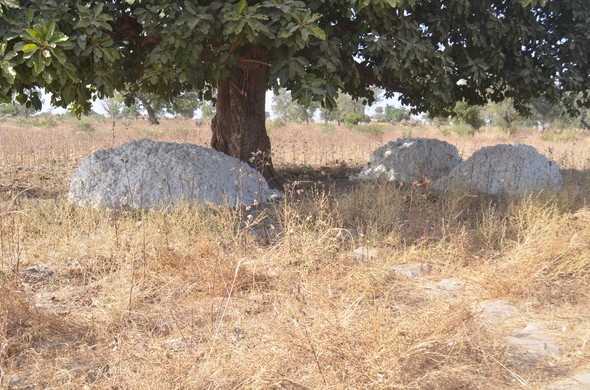By Michelle Danleu and Jaff Bamenjo, RELUFA, Joining Hands Cameroon

Harvested cotton by Cameroonian farmer ready to sell. Photo Credit: Jaff Bamenjo
There has been a lot of debate in many African countries recently regarding the gradual introduction of Genetically Modified Organisms (GMOs). For a long time, local food production in most African countries had remained organic, and was therefore considered safe and healthy. However, increasingly, GMOs are being introduced by influential multinational companies and certain foreign governments. The claim is that GMOs will improve agricultural productivity, minimize food production costs, increase resistance to pests and disease; and ultimately reduce hunger through greater yields.
Recently in Cameroon, the company SODECOTON, a state owned and operated company involved in the production and marketing of cotton, declared its intention to embark on the cultivation of GMO cotton. In 2012, the company began research on GMO cultivation indoors and more recently has decided to start experimenting in open fields. The company claims that the GMO strain that they are currently testing is more robust against pests and disease and will therefore enable higher yields. According to SODECOTON their current production capacity is 230,000 tons of cotton per year which falls short of meeting the high market demand for the product. SODECOTON says that one reason it is shifting production to GMOs is to meet market demand.
It’s disconcerting that the laws and regulation systems in Cameroon are not currently stringent enough to monitor the rapid spread of GMOs and ensure their safety. Presently, the country is operating under a set of laws and regulations adopted more than a decade ago that is too general to be effective. And the government has yet to dedicate resources and staff to the monitoring and regulation of GMOs. Given the lack of regulations, we fear that the necessary controls won’t be initiated during open field trials to prevent contamination of non-GMO fields. Cameroon’s decision to embrace GMOs seems untimely as more countries are choosing to ban either the production or import of GMOs or both.
Another major worry is that so much focus and attention is being directed toward the recent threats of the terrorist group Boko Haram in the northern region of Cameroon, where SODECOTON is based, that SODECOTON’s activities will not a priority for the government and will carry on with minimal government intervention.
For more than a decade RELUFA has been working with local communities in Northern Cameroon, the poorest region in the country, to improve food security and reduce hunger. Knowing the difficult realities in which our Northern Cameroonian brothers and sisters are living, we are concerned that introducing GMO cotton, which usually requires intensive applications of pesticides, in Northern Cameroon, could degrade the soil further in a region where soil erosion and desertification are already major problems and farmers already struggle to grow the food necessary for feeding their families and communities. Furthermore, we are apprehensive that farmers could become more dependent on foreign markets, since corporate patents on seeds will prevent farmers from saving, exchanging and replanting seeds as they have done for generations.
We know that there is still much debate about whether GMOs are safe and healthy. However, we have heard stories of farmers in India who have committed suicide by drinking their pesticides when their GMO crops failed. Stories like these, warn us to proceed with caution. We must make sure that proper safeguards and systems of monitoring are put in place before entering into experimentation with GMOs.
![]() You may freely reuse and distribute this article in its entirety for non-commercial purposes in any medium. Please include author attribution, photography credits, and a link to the original article. This work is licensed under a Creative Commons Attribution-NonCommercial-NoDeratives 4.0 International License.
You may freely reuse and distribute this article in its entirety for non-commercial purposes in any medium. Please include author attribution, photography credits, and a link to the original article. This work is licensed under a Creative Commons Attribution-NonCommercial-NoDeratives 4.0 International License.